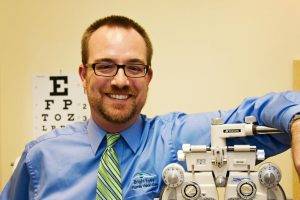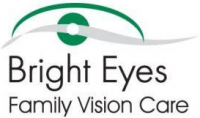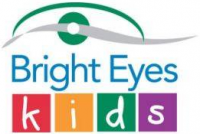Welcome to The Bright Eyes Podcast: Advice for Healthy Vision for All Ages. Your hosts are Dr. Nate Bonilla-Warford & Dr. Beth Knighton, residency-trained optometrist that provide eye exams for glasses and contacts, and specialty services including vision therapy, myopia control, orthokeratology, and sports vision training. Their mission to empower patients by providing the best in friendly, professional, and individualized eye care.
"When vision is working well it guides and leads; when it does not, it interferes."
—John Streff, OD, DOS, FCOVD, FAAO
Transcript:
- [00:00:00] From hot hot hot Tampa, Florida this is the Bright Eyes podcast. This is episode number three which is all about Vision Leads. My name is Dr. Nate Bonilla-Warford. I am not joined by my usual guest Dr. Beth Knighton. So before we get to the main topic of the show today I want to mention one quick thing. I'm recording in the same exam room which is the blue exam room at Bright Eyes Family Vision Care. But you might notice that the sound quality is just a little bit different. First of all, it's just me. And second of all, I have a different type of microphone, constantly trying to improve the sound of the show. And so if you have any feedback, positive, negative, or otherwise, just send it to office@BrightEyesTampa.com.
- [00:00:49] On to the main topic of the show, which is Vision Leads. When I was a student when I was a resident in Optometry, I got to learn from many wise and experienced influential Optometrists and I was lucky enough to see one of them, Dr. John Streff, lecture twice in my career. Dr. Streff was such a warm and generous person who was fascinated by patients and he genuinely wanted to help patients improve their overall quality of life. This topic I think really gets to one of the things that we mentioned briefly in the last episode when we were talking about the differences between Optometrists and Ophthalmologists, and that is how do we think about vision and how do we think about how it affects people's everyday lives. Dr. Streff is remembered for many different things. But one of the things that he's remembered for is this quote which I'm going to have Sara from my office read.
- [00:02:03] Quote by optometrist John Streff. When vision is working well it guides and leads. When it does not it interferes.
- [00:02:10] I love this quote because it explains a lot about how optometrists approach patients and their vision. And you'll notice it doesn't say anything about 20/20 or visual acuity. We're going to have some episodes on that topic in the future but I'll just mention it briefly now. When we say somebody has 20/20 vision, what that really means is somebody has the ability to see small characters that are about eight millimeters high from about six meters away. And that's all it says. It just means that your visual clarity is of a certain amount and that's important. It's important in some circumstances more than others. But it's really not the main thing that is important about vision. What is important is does somebody's visual system, their eyes and their brain and their body working together; Does it help them accomplish the things they want to do? Or does it cause problems that hinders that person in the things that they want to do? And I want to take three examples today. These are examples that Optometrists like Dr. Beth and myself, we think about literally every day when we are working with patients.

- [00:03:36] The first one is the act of reading, both learning to read and being able to read for long periods of time so that we could absorb lots of information quickly. Reading is extremely complicated. Yes you have to have a certain amount of visual clarity to be able to see the letters and words on the page. But reading has much more to do with how the eyes move and how they focus and how they work together as a team and how long somebody can read with comfort. When the eyes are working well with the brain and the body, then it leads to efficient reading; eye movements are smooth and they are consistent and they're accurate. And it doesn't lead to re-reading or making mistakes or skipping words or skipping lines. If the words are comfortably in focus and patients don't have to bring their head closer to the book or a page or don't have to hold things further away or they don't get headaches from trying to do all those things, then it makes it efficient. If the eyes are having discomfort, then it interferes and it makes reading more difficult. Likewise, it's helpful if words look single and clear and look like they stay in place when we're reading them so that it's not frustrating. It interferes if the eyes don't work well together and the words will jumble up or split apart into two or look like they're moving around on the page and that will cause interference of reading. And so these visual skills I'm talking about have very little to do with what visual acuity somebody has and many other skills that if they work well together help somebody become a good proficient reader and they can learn a lot and take in a lot of visual information and if they don't it can cause problems that make it difficult to become a good reader. So that's one example that we deal with everyday.
- [00:05:53] Another example is sports. Vision has so much to do with sports that there's a whole section of Optometry called Sports Vision and Sports Vision training helps people who already have very good visual skills become even better. And that is how they get an edge on other players and their competitors. So if you're playing almost any sport but certainly a sport that involves a fast-paced movement and throwing and catching those sorts of things you want to have very good spatial awareness and peripheral vision and visual reaction time. Now Dr. Beth is really more of a Sports Vision person in our practice so she can talk more about this in later episodes. If you have those skills it will enhance your ability to perform well on the field. If you don't have good peripheral vision and visual reaction time and good depth perception and spatial awareness, it's much more likely to interfere with your ability to make judgments and throw and catch in a way that makes you as competitive as possible. And that's why people will seek out improvements in visual skills to improve their sports performance.
- [00:07:13] And then the last area that I wanted to mention is something that many adults do almost every day especially here in Tampa, Florida and that is driving. So we kind of take driving for granted and we kind of take vision for granted. When your eyes and your brain work well together then you can do lots of different visual tasks all at once. You can read signs you can see when cars are in front of you and behind, you you can be aware of somebody is changing lanes. And that's what we assume will happen when vision works well. It leads you to make better safer decisions about driving. People who have visual problems whether it's after an accident or other sorts of injuries they all of a sudden realize that vision interferes dramatically with driving. They might have double vision when they're driving. They might become visually overwhelmed and have trouble making decisions about which lane to be in or whether to go or whether to not go. Or they might not be able to use their peripheral vision to the best of their ability. And so they're constantly having to look around to judge what other cars are doing. And so that's a situation where vision can interfere with somebody's ability to drive safely. Now the important thing about all three of these examples whether it's reading, whether it's sports, or whether it's driving, is in all of these cases these are visual skills that can be improved that can minimize when vision interferes with everyday life and enhance how vision leads and guides you. And that can happen in all different kinds of ways it happens over time as people become more confident and more aware. It happens when we prescribe the best possible glasses or contacts or other sorts of procedures like Ortho-K to improve their vision. And it can happen through either vision therapy to improve skills or deficits that people have. Or through vision training to take vision and make it even better than it already is. Vision is something that fluctuates. It responds to stressful situations and relax situations and it responds to practice and responds to self-awareness. And that is exactly the way optometrists think about vision; is something that can be developed. It can be improved and it can be done so in our conscious cognitive way. And we're going to talk more about those things. I want to mention that in John Streff's honor, there has been created a Vision Leads Foundation.
- [00:09:53] So recognizing his tremendous impact on Optometry as a profession and all of his patients the goal of this non-profit organization is to improve access to care for the patients who need it. And you can find out more about that organization at www.visionleadsfoundation.com. If you have any questions about this concept or if you have any other feedback like I said, you can e-mail us at office@brighteyestampa.com. I really look forward to talking about these sorts of concepts more and in the meantime.
- [00:10:28] Everybody stay cool.
Thank you for listening. If you have questions, comments, or suggestions, you can email us at office@brighteyestampa.com.
The only purpose of this podcast is to educate and to inform. It is no substitute for professional care by a doctor experienced in the area you require. This podcast is provided on the understanding that it does not constitute medical or other professional advice or services. Please consult your physician for diagnosis and treatment.
Intro/outro music: Lucas Warford of Three For Silver.
Background music: Chopin via MusOpen.com.



Leave a Reply